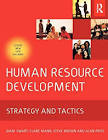Learning
|
Learning |
|
| Home | Business | Computing | Fiction | Food and Drink | Gardening | History | Learning | Psychology | Travel | Erectile Dysfunction |
| Home > Learning, Training and Knowledge Management > The miracle of learning > HRM Guide |
|
The miracle of learningLearning is the foundation of human success, as a species and as individuals. We learn from our mothers and our mistakes and our ability to learn allows us to deal with both the familiar and the unexpected. We learn from the moment we are born and continue learning until our very last lesson - death. Without learning we would not be human beings. When we cease to learn, we are humans no more. Martel points out that learning is at once a 'quite ordinary act that takes place every day in every culture and at all age levels' but it is also an 'extraordinary process, uncommon in all of nature, that we have been endowed with, which permits the possibility for us to move from the selfish, humdrum of daily routine to the potential of unfolding our dreams and uncovering our unique purpose on this earth.' Martel rightly marvels at the power of learning and its direct relationship with our ability to live. We can describe how learning occurs but, Martel notes, 'we have not satisfactorily explained "why" learning occurs the way it does or "how" innovative and new outcomes arise from learning, such as creativity, scientific invention, and problem solving.' It is significant also that all human beings are unique and this is demonstrated in the different ways that we learn. We all make connections, use symbols and communicate as best we can. Learning involves our nervous systems, brains and memory mechanisms. But learning is an individual process - we each have our own unique learning style. Unfortunately, we also believe that our particular style of learning is the 'right way' and frequently try to impose it on others. Martel describes this individuality of style thus: 'The fact is that no two people learn in exactly the same way (...) each person has a unique focus, application of learning, and a manner or modality of learning that is tailor-made for taking in new information and thinking about it.' Martel regards an act of learning as being 'an act of creating something entirely new or modified out of the current experience or knowledge base.' He sees five outcomes of learning which go beyond most people's notion of what learning involves: 1. Learning "to know" with certainty and truth And, perhaps most surprisingly, for those of us with more conventional beliefs about the process of learning: 5. Learning "to serve others" with love, joy, peace, goodness, patience, humility and kindness Martel does not regard these outcomes of learning, knowledge and skill as being innate. On the contrary, he argues, 'we must learn, grow and develop in each category to gain capability for the journey toward personal and community enhancement.' More articles:The adult learner - andragogyInduction - orienting new employees The role of the trainer Learning Organizations Knowledge Management The value of lectures Excerpts from Chapter 5, The Trainer's Handbook |
 Human Resource Development: Strategy and Tacticsby Juani Swart, Clare Mann, Steve Brown and Alan PriceThis book examines the factors influencing the effectiveness of an individual's learning, how people learn and the assessment of training and learning needs, showing the significance of aligning departmental, group and individual HRD objectives with business goals. More information and prices from:
 by Michael J. Marquardt, Reginald Revans "For many organizations around the world, action learning has quietly become one of the most powerful action-oriented, problem-solving tools, as well as their key approach to individual, team, and organization development." More information and prices from: Amazon.com - US dollars SeekBooks.com.au - Australian Dollars Amazon.ca - Canadian dollars Amazon.co.uk - British pounds (different cover) Amazon.de - euros Amazon.fr - Euros |
|
|
|
|
|
|
|
|
|
|
|
| Copyright © 2000-2006 Alan Price and BestBooks.biz contributors. All rights reserved. |